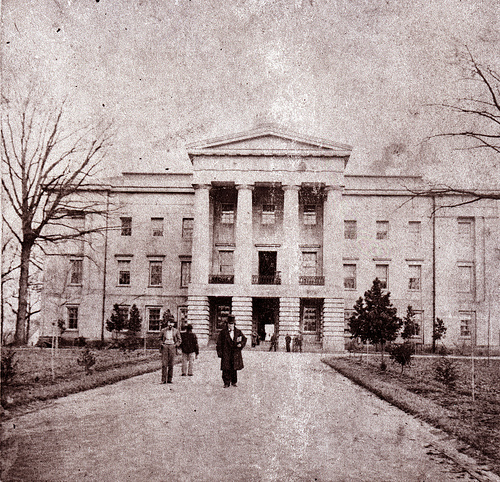 |
| Capital Building in 1861 |
Whereas, ... Abraham Lincoln, President of the United States, did, on the 16th day of April, by his proclamation call upon the States of the Union to furnish large bodies of troops to enable him, under the false pretense of executing the laws, to march an army into the seceded States with a few to their subjection under an arbitrary military authority, there being no law of Congress authorizing such calling out of troops, and no constitutional right to use them, if called out, for the purpose intended by him; ...1Therefore they declared their independence and severed their bond with the United States:
We do further declare and ordain, that the union now subsisting between the State of North Carolina, and the other States, under the title of 'The United States of America," is hereby dissolved, and that the State of North Carolina is in full possession and exercise of all those rights of sovereignty which belong and appertain to a free and independent State.2A large percentage of North Carolina's people were still for the Union, but they did more than their share for the Confederacy. One-seventh of all Confederate troops came from North Carolina.
1. The North Carolina Booklet volume XI, no. 1, July 1911 p. 15 This text was not actually adopted, it is from an earlier draft. The final resolution was much shorter and did not go into the details of why they chose to leave the Union.
2. Ibid, p. 16


0 comments:
Post a Comment